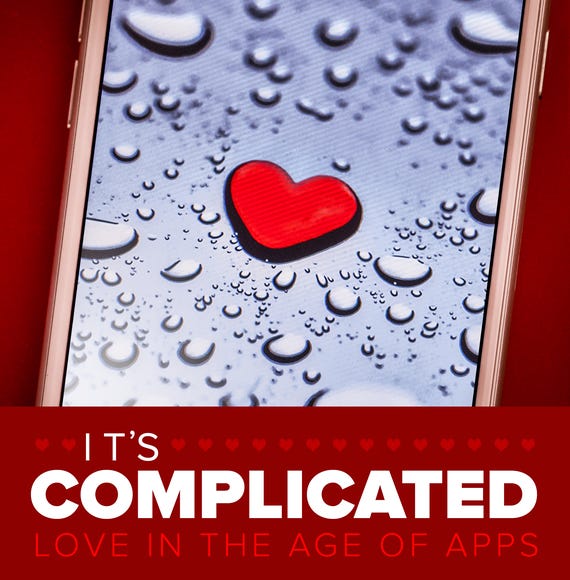By Ian Sherr
If you had to explain dating in 2017 to a time traveler from the 1950s, what would you say?
“I would explain texting first, and how it takes five minutes now for people to decide they want to hook up,” says comedian Nikki Glaser. “I would tell women, ‘Buckle up, bitch, this is not going to be a fun ride.'”
Glaser, 32, has made a professional study of dating sites like Tinder and the hookup culture that experts say has reshaped many people’s sex lives. It provides lots of fodder for her comedy routine.
For past generations, relationship milestones meant things like “going steady.” Today’s relationships can strike up after a few minutes of text chats.
And since nearly everything is done using an app on a phone, “you can have a relationship with someone and never hear their voice,” Glaser says.
So this is dating in the modern age. Having fun yet?
Dating apps are so commonplace now that swipe right, the way you show you like someone on Tinder, has become part of our everyday language. “Swipe right” now means “anytime you make a good choice or approve of something,” according to Urban Dictionary.
The internet has been “transformational” to the way we have relationships, says Pepper Schwartz, a professor of sociology at the University of Washington who studies dating. She’s noticed, for example, the speed at which technological trends ripple through our culture, and how quickly people become adopters.
“It changes us,” she said. “It’s a very powerful presence in modern life.” That’s particularly true in courtship and dating, Schwartz said.
Go back a couple hundred years, and the world was transitioning from arranged marriages to “love.” (Schwartz said researchers could tell because children weren’t getting married in order of oldest to youngest anymore.) Up until the automobile, airplane and mass education, people usually married someone nearby, such as a neighbor, a fellow churchgoer or the girl next door.
But these shifts fractured many communities. That, along with sex education, family planning and, in some places, egg freezing as a company-provided health benefit, has meant many people are waiting longer before they settle down.
Who hasn’t read about how millennials are less religious, have fewer kids and, despite the popularity of Tinder and the less formal dating culture it’s helped introduce, may even be having less sex? The term “cybersex,” which used to mean people describing sexual experiences to each other over chat, has morphed into “sexting” — and it’s a far more accepted part of life. Varying sexuality and gender identity are more accepted today as well.
So as time passes and people move around, the traditional pools from which you’d normally find a partner pretty much disappear, Schwartz said. That leaves today’s relationship seeker with few options other than to look online.
It’s no wonder then that over 90 percent of America’s more than 54 million singles have tried online dating, according to the Statistic Brain Research Institute.
Over the past decade, dating services have been set up for pretty much any interest. If you wanted to date only people who like Star Trek, normally you’d have to weed through several p’tahks before finding someone to join your crew, as it were. Now there’s a site for pretty Star Trek fans, as well as sites for vampire enthusiasts, gamers and even devotees to the writings of Ayn Rand.
There’s even a site for supporters of the newly inaugurated president of the United States. It’s called TrumpSingles.com.

